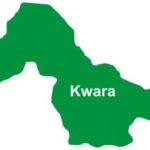As part of President Bola Ahmed Tinubu’s Renewed Hope Agenda, which aims to revolutionize Nigeria’s digital landscape and enhance economic development, there is a strong commitment to creating a more efficient and agile public sector.
This commitment focuses on deploying and adopting cutting-edge digital solutions and services across government entities.
Galaxy Backbone (GBB) introduces the 1Government Cloud solution—a combination of Infrastructure and Software as a Service (IaaS and SaaS) frameworks. This solution is specifically designed to provide Federal Ministries, Departments, and Agencies (MDAs) with the software and secure data storage necessary for their operations, all through a standardized, unified interface. This approach aligns with best practices and supports the Federal Civil Service Strategy Implementation Plan 2025 (FCSSIP 25).
1Government Cloud is a robust, secure cloud computing platform tailored for the Nigerian government and its agencies. It enables efficient service delivery, improved productivity, and enhanced citizen engagement by leveraging cloud technology.
- NABTEB launches digital platform to ease verification, certificate collection
- Tinubu inaugurates southern monarchs’ council
At a recent meeting with key stakeholders, GBB’s MD/CEO, Professor Ibrahim Adeyanju, emphasized the importance of collaboration to ensure the successful digitalization of government processes.
He stated, “The objectives of the 1Government Cloud solution around Data Sovereignty, Data Security, and uniformity across Federal Government MDAs should be emphasized as the most reliable path towards sustainability of government processes.”
Data localization is crucial, as many advanced nations highlight it as essential for protecting citizens’ data. The ongoing deployment of the 1Government Cloud solution across various MDAs showcases the benefits of system interoperability, which leads to greater effectiveness and streamlined human resources and document management. This deployment also enhances citizen engagement.
The project aims to foster data localization, stimulate public-private partnerships, and support broader economic development goals through digital innovations in:
Enterprise Content Management,
Performance Management
Learning Management,
Inter-MDA Communication,
File Sharing,
Asset Management,
Conferencing and E-Signing.

 Join Daily Trust WhatsApp Community For Quick Access To News and Happenings Around You.
Join Daily Trust WhatsApp Community For Quick Access To News and Happenings Around You.


